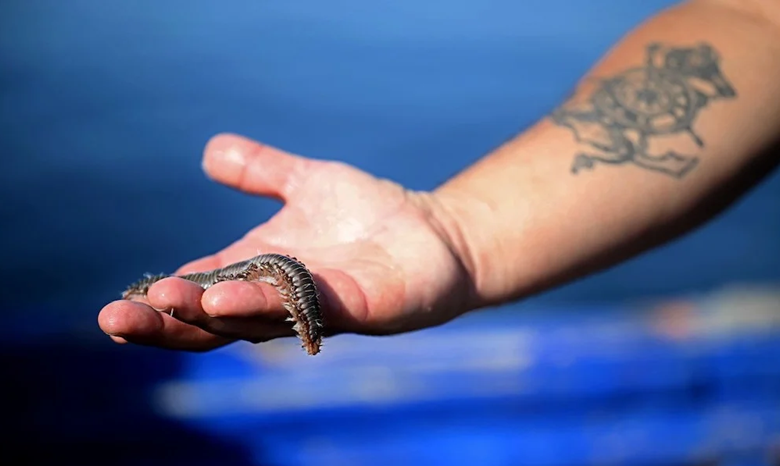Sicilian Fishermen Struggle with Bearded Fireworm Infestation Amidst Climate Change

News Mania Desk/Agnibeena Ghosh/30th July 2024
Fishermen in Sicily are grappling with an escalating issue caused by bearded fireworms, which are disrupting local fishing practices. These invasive predators, flourishing in the warming waters of the Mediterranean Sea, are causing significant damage to fish caught in nets, rendering them unsellable.
Bearded fireworms, measuring between 15 to 30 centimeters in length, resemble centipedes and are equipped with venomous white bristles that can deliver painful stings to those who come into contact with them. The proliferation of these worms is linked to rising sea temperatures, a consequence of climate change, which has created a year-round habitat ideal for their survival and expansion.
Fishermen, such as Alfonso Barone, are facing a severe impact as a result. To mitigate the damage, they have been compelled to shorten the duration their nets remain submerged, which in turn leads to reduced catches. “They eat the head, the whole body, they gut it,” Barone lamented. He further emphasized how global warming has made the waters more suitable for these pests, leading to their increased numbers and a longer presence throughout the year.
Previously, fireworms were primarily confined to the waters off Sicily during the summer months. However, their migration has extended northwards, with reports of infestations reaching Calabria in southern Italy. This spread has not only affected fishermen but also beachgoers in areas such as Marzamemi, where people are now using masks and water shoes to protect themselves from potential stings.
The broader implications of warming Mediterranean waters are also being felt beyond the fireworm issue. The changing climate is contributing to habitat loss and mass die-offs of various marine species. Moreover, the arrival of non-native tropical species, such as the blue crab, is further unsettling the local ecosystem.
Zoologist Francesco Tiralongo, leading research on fireworms at the University of Catania, has made a troubling observation about the worms’ resilience. “You can’t kill a fireworm by cutting it in half; it has excellent regeneration capabilities,” Tiralongo explained. He noted that if a fireworm is sliced in two, the head section can regenerate a new rear half, while the rear section can regrow a head in about 22 days. This remarkable ability makes controlling and reducing their population even more challenging.
The situation highlights the complex interplay between climate change and marine ecosystems, illustrating how global warming is not only affecting temperature but also altering the balance of marine life in unexpected and problematic ways. As the Mediterranean continues to warm, the persistence and expansion of fireworms serve as a stark reminder of the broader environmental changes underway and their impact on local communities.






